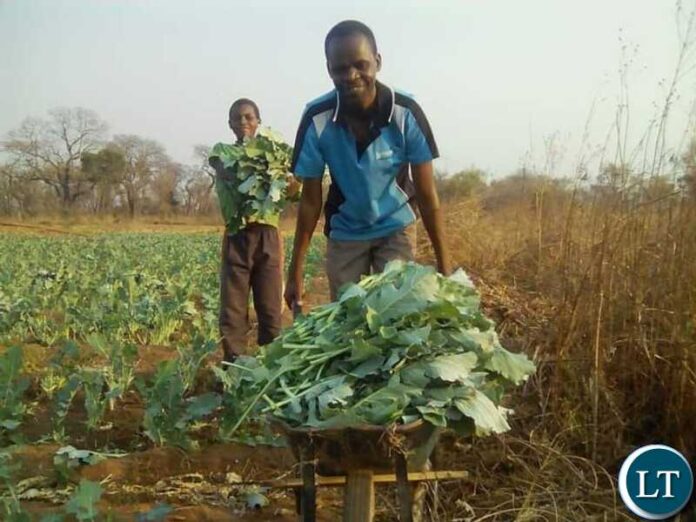African countries are facing an escalating climate change bill, with an average loss of 2-5 percent of Gross Domestic Product (GDP) due to climate extremes.
In Africa, the cost of adaptation is estimated to be between USD 30-50 billion annually over the next decade, representing 2-3 percent of the region’s GDP., according to the 2023 State of Climate in Africa report.
“This report serves as a stark reminder of the urgency of climate action in Africa, where extreme weather events are intensifying and disproportionately impacting the continent’s social economic development,” Minister of Green Economy and Environment, Mike Mposha said.
During the launch of the 2023 State of the Climate in Africa report at the 12th Climate Change and Development in Africa (CCDA12) Conference by the United Nations Economic Commission for Africa (ECA), the World Meteorological Organisation (WMO) and the African Union Commission in Abidjan, Côte d’Ivoire on Monday, Mr. Mposha said Africa was uniquely vulnerable to climate change.
“With its high dependence on rain-fed agriculture and limited adaptive capacity, rising temperatures, rising sea levels, and erratic rainfall are already causing widespread harm to human health, ecosystems, and livelihood. These challenges threaten to derail Africa’s big-bed progress towards achieving the sustainable development goals and the African Union agenda 2063,” he said.
Mr Mposha said it was essential to continue advocating for increased investments in climate adaptation and resilience, particularly through the laws and dynamic priorities.
“Africa faces disproportionate burdens and risks from climate change, which threatens food security, public health, and socio-economic development across the continent,” said Ambassador Josefa Leonel Correia Sacko
Deputy Executive Secretary and Chief Economist at the Economic Commission for Africa (ECA) Hanan Morsy said Africa was on the front lines of fighting climate change and its impacts, from rising temperatures to shifting rainfall patterns, and other extreme weather events.
“Consequently, key sectors like the agricultural sector, which employs over 60 perent of Africa’s population, are under threat. Crops are failing and livestock is suffering as climate variability disrupts traditional farming practices, jeopardizes food supply, and the economic stability of nations, which are already grappling with high poverty and levels,” Ms. Morsy said.
She added that at the same time, African countries face significant debt distress, forcing trade-offs with critical development needs such as health or education.
“We can only drive investments in climate action if we have financing. Therefore, there is an urgent need to achieve sustainable debt levels to make the essential investments.
“There must be first, a timely and sustainable international debt resolution that calls for an overhaul of the G20 Common Framework to make it more effective, time-bound, and transparent, and second, a reform of the global financial architecture to ensure affordable financing at scale. Third, the implementation of innovative financing instruments such as debt-for-nature swaps, and green and blue bonds; and fourth, advancing carbon markets to establish a fair carbon price supported by high-integrity carbon registries to ensure transparency and trust. These are transformative avenues to address Africa’s climate finance requirements,” Ms. Morsy explained,
The 2023 State of the Climate in Africa report is expected to serve as a vital tool for policymakers, providing the observational basis necessary to drive action and support decision-making in the face of an increasingly challenging climate future.
By Benedict Tembo



Malabish! they will tell us the same things when heavy rains start or when we get a cold spell. Our climate has always fluctuated. Humans don’t live long enough to experience this change. You are diverting water from rivers for over irrigation and then blaming climate. You are building houses in reserved water recharge areas but still point at climate change. You have failed to divert your water drainage systems into reservoirs but prefer to take the easy root of climate change. I think Zambia needs climate mind set change.
If the disasters, fires, earthquakes, tsunami that often hit USA, Japan, Turkey, India, China, happened to hit an African country…. that country would stop to exist.
You right, there is a lot of misinformation on climate change
Scientists do not agree on climate change but you present it as gospel!
Comments are closed.